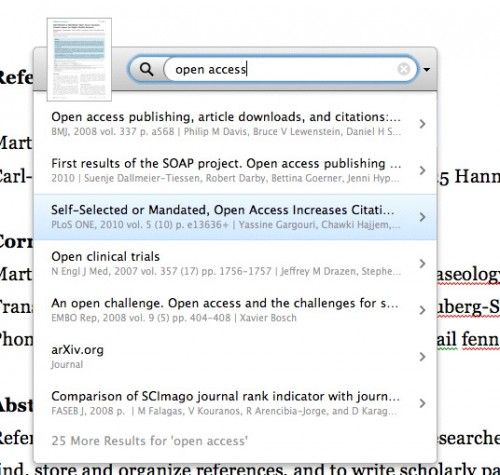
The reference management software Papers has been a regular topic on this blog.

The reference management software Papers has been a regular topic on this blog.
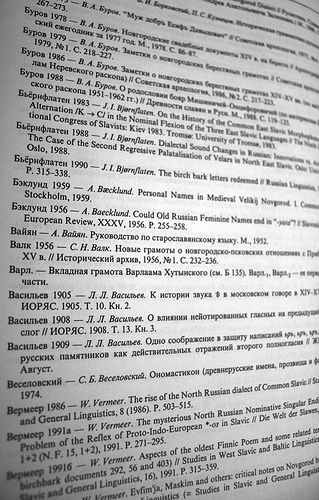
The bibliography of a scholarly paper is interesting and important reading material. You can see whether the authors have cited the relevant literature, and you often find references to interesting papers you didn’t know about. Bibliographies are obviously also needed to count citations, and then do all kinds of useful and not so useful things with them. Unfortunately almost all bibliographies are in the wrong format.

One of the annoyances with bibliographies as we use them for scholarly papers is that is usually unclear why a particular paper was cited. It is often possible for readers to gather this information by looking at the citation in the context of the surrounding text, but this is very difficult to automate.
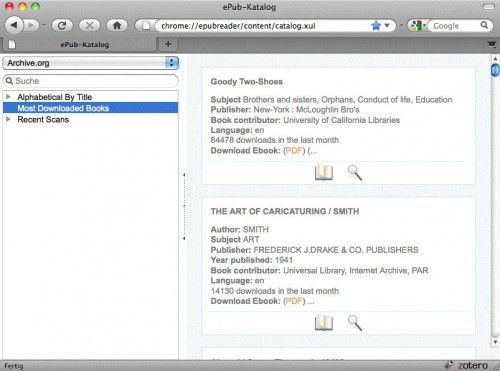
ePub is a great format for scholarly content, and there are a number of tools to create ePub files. But creating content is only half the story, at least as important is an easy mechanism for distribution. This is particularly true if your ePub files are not books, but shorter pieces of content: journal articles, blog posts or even output from your ongoing research.
Regular readers of this blog know about my current interest in WordPress as a tool to create scholarly content. In the last few weeks I have released several WordPress plugins for reference management and to create ePub files. Obviously I’m not the only person having this idea.
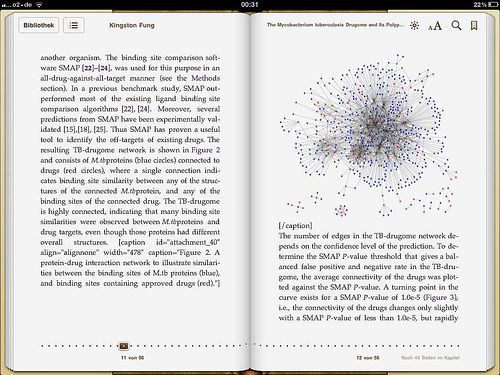
The Beyond the PDF workshop took place a little over a week ago. One take-home message for me was that ePub is a very interesting document format for scholarly publishing and has several advantages over PDF. The workshop had a wonderful spirit to do something, and in this spirit I wrote a WordPress plugin that automatically creates ePub files from blog posts.
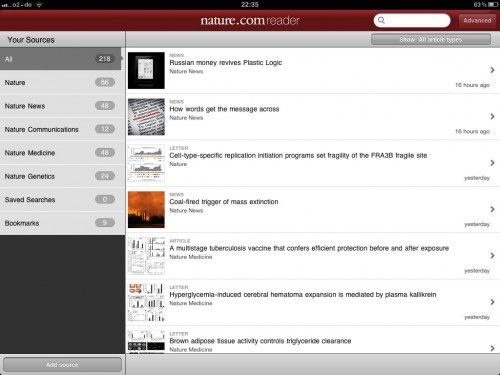
Today nature.com released their iPad reader application.
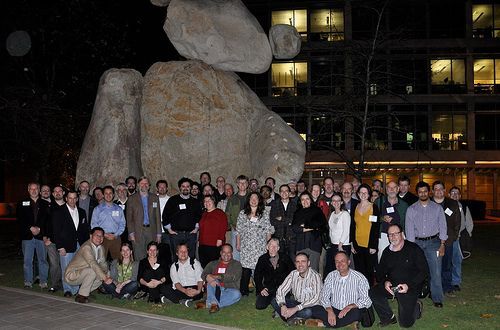
Having breakfast at the end of a conference is a good way to recap what was discussed and can help to generate new ideas. Two years ago at ScienceOnline09 a conversation with Cameron Neylon that followed up on the session Reputation, authority and incentives. Or: How to get rid of the Impact Factor (moderated by Björn Brembs and Pete Binfield) was started my interest in unique author identifiers for researchers.
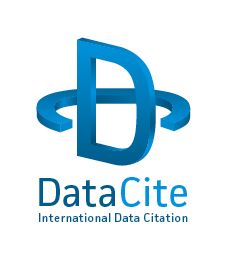
DataCite is an international consortium for data citation. DataCite originally started as a project at the German National Library of Science and Technology (TIB). Since 2005 the TIB was providing digital object identifiers (DOIs) to research datasets. In December 2009 research libraries and technical information centres from 6 countries founded the DataCite initiative.
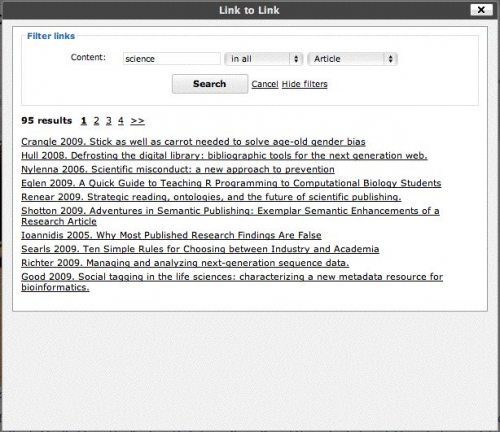
ScienceOnline2011, the fifth annual international meeting on Science and the Web, is only two days away. I am very excited for many reasons, most importantly because it gives me the chance to meet many online friends in person – again or for the first time. On Saturday I will help moderate two (related) sessions: How is the Web changing the way we identify scientific impact and Having fun with citations.
Articles published in Nature , Nature Biotechnology , Nature Cell Biology , Nature Medicine or Nature Chemical Biology are now available for renting from DeepDyve. Downloading or printing is not possible, and the $3.99 rental is for 24 hours. Later this month, Nature plans to release the nature.com reader for the iPad.